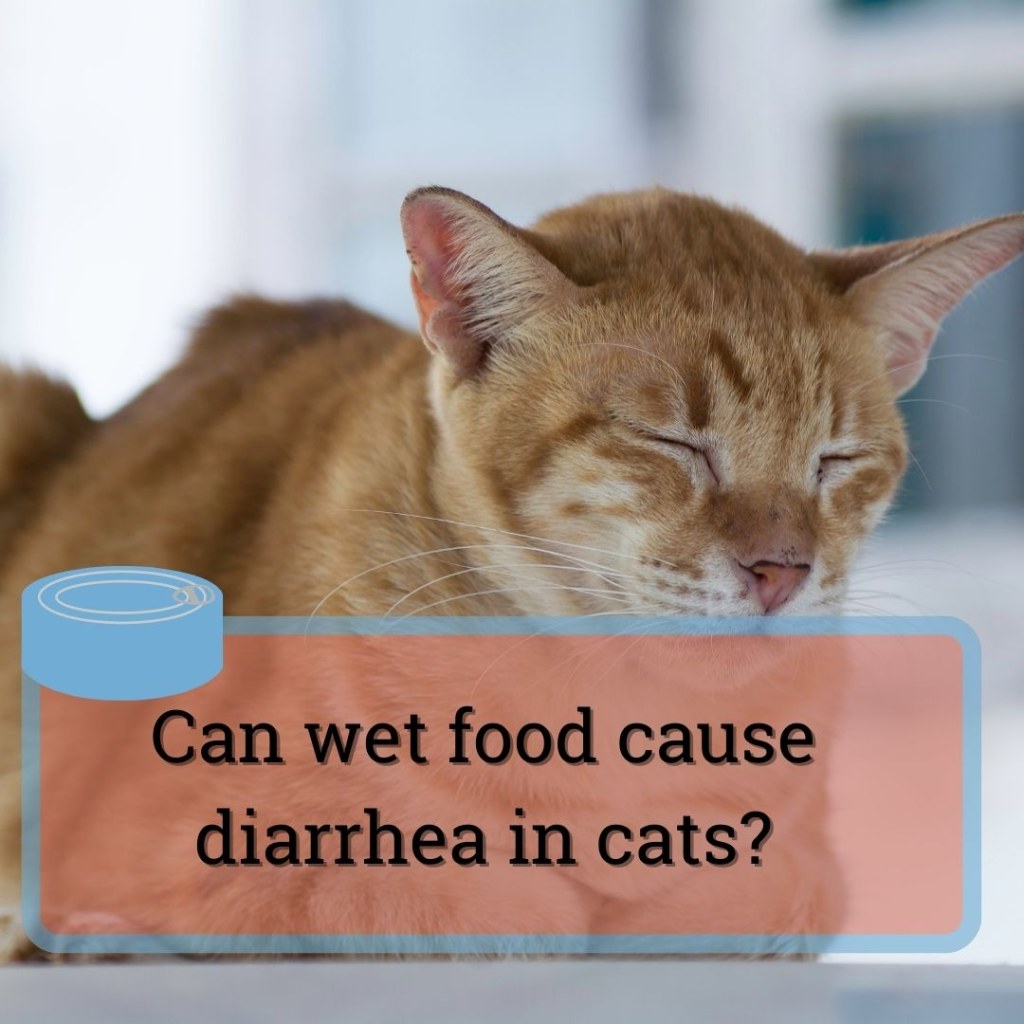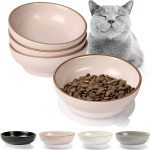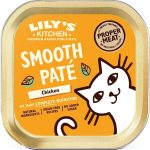Unveiling The Truth: Can Wet Cat Food Truly Cause Diarrhea? Discover The Answer Now!
Can Wet Cat Food Cause Diarrhea?
Greetings, Cats Lover! As a cat enthusiast, it is important to ensure the well-being and health of our feline friends. One common concern among cat owners is whether wet cat food can cause diarrhea in cats. In this article, we will delve into this topic and provide you with valuable information to better understand the relationship between wet cat food and diarrhea.
Introduction
Diarrhea is a common digestive issue in cats, characterized by loose, watery stools. It can be caused by various factors, including diet changes, food allergies, infections, and more. Wet cat food, which contains higher moisture content compared to dry food, has been a subject of debate regarding its potential to cause diarrhea in cats.
2 Picture Gallery: Unveiling The Truth: Can Wet Cat Food Truly Cause Diarrhea? Discover The Answer Now!


Understanding the possible effects of wet cat food on feline digestion is crucial for pet owners, as it helps them make informed choices when selecting the right diet for their furry companions. In this article, we will explore the what, who, when, where, why, and how of wet cat food causing diarrhea, as well as the advantages and disadvantages it may present. Additionally, we will address frequently asked questions and provide a conclusion to empower you to take appropriate action.
What is Wet Cat Food?
Wet cat food, also known as canned cat food, is a type of cat food that contains a higher moisture content compared to dry food. It typically comes in sealed cans or pouches and is available in various flavors and formulations. Wet cat food is often favored by cat owners due to its palatability and ability to provide hydration to cats.
Explanation:

Image Source: adoptandshop.org
Wet cat food is made by combining meat, poultry, fish, and other ingredients with water or broth to create a moist texture. The water content in wet cat food can range from 70% to 85%, ensuring that cats receive an adequate amount of hydration. This can be particularly beneficial for cats that struggle to drink enough water on their own.
Furthermore, wet cat food is often rich in protein and can provide essential nutrients necessary for a cat’s overall health. However, despite its benefits, some cats may experience digestive issues, such as diarrhea, when consuming wet cat food.
Who is Affected by Diarrhea from Wet Cat Food?
Diarrhea can affect cats of all ages and breeds. However, some cats may be more prone to digestive issues than others. Cats with sensitive stomachs, food allergies or intolerances, and underlying health conditions may be more susceptible to experiencing diarrhea after consuming wet cat food.
Explanation:
Each cat is unique, and their digestive systems may react differently to certain types of food. While some cats may thrive on wet cat food without any issues, others may experience gastrointestinal upset, resulting in diarrhea. It is essential to monitor your cat’s response to different diets and consult with a veterinarian if any concerns arise.
When Can Wet Cat Food Cause Diarrhea?

Image Source: i0.wp.com
Wet cat food can cause diarrhea at any time when a cat’s digestive system is sensitive or intolerant to certain ingredients present in the food. Immediate reactions, such as diarrhea shortly after consuming wet cat food, may indicate an acute intolerance or allergy. On the other hand, some cats may develop chronic diarrhea after being exposed to specific ingredients over a more extended period.
Explanation:
If you notice that your cat consistently experiences diarrhea after consuming wet cat food, it may be necessary to switch to a different brand or formulation. Your veterinarian can help identify potential food allergens and guide you in finding a suitable diet that meets your cat’s nutritional needs without causing digestive issues.
Where Does Wet Cat Food Cause Diarrhea?
Wet cat food can cause diarrhea in the gastrointestinal tract of cats. The digestion process involves the breakdown of food in the stomach and absorption of nutrients in the intestines. If the digestive system is sensitive or intolerant to certain ingredients in wet cat food, it can lead to irritation and inflammation, resulting in diarrhea.
Explanation:
The gastrointestinal tract is a complex system responsible for processing and absorbing nutrients from food. If the balance of this system is disrupted, it can lead to various digestive issues, including diarrhea. Wet cat food contains different ingredients that may trigger an adverse reaction in some cats, causing diarrhea as a result.
Why Does Wet Cat Food Cause Diarrhea?
The exact reasons why wet cat food causes diarrhea in some cats are not fully understood. However, several factors may contribute to this digestive issue. One possibility is that certain ingredients in wet cat food can be difficult for some cats to digest, leading to gastrointestinal upset and diarrhea.
Explanation:
Cats have individual dietary preferences and sensitivities. While some may tolerate and digest wet cat food without any issues, others may struggle with certain ingredients. Common culprits that can potentially cause diarrhea in cats include artificial additives, preservatives, fillers, and even specific protein sources. Identifying the specific trigger can help alleviate the symptoms and prevent further episodes of diarrhea.
How Can Wet Cat Food Cause Diarrhea?
Wet cat food can cause diarrhea through various mechanisms. One possible way is through an allergic or intolerant reaction to specific ingredients in the food. In some cases, the high moisture content in wet cat food can also alter the consistency of the stool, resulting in looser bowel movements.
Explanation:
When a cat’s immune system reacts to an allergen or intolerant ingredient, it can trigger an inflammatory response in the digestive system, leading to diarrhea. Additionally, the higher water content in wet cat food can increase the bulk and frequency of bowel movements, causing looser stools. Monitoring your cat’s stool consistency and seeking veterinary advice when necessary can help address any issues effectively.
Advantages and Disadvantages of Wet Cat Food Causing Diarrhea
As with any dietary choice, wet cat food has its advantages and disadvantages when it comes to causing diarrhea in cats. Understanding these can help you make an informed decision about whether wet cat food is suitable for your feline companion.
Advantages:
1. Hydration: Wet cat food provides a significant source of moisture, aiding in the hydration of cats, especially those that do not drink enough water on their own.
2. Palatability: Many cats find wet cat food more palatable compared to dry food, which can encourage them to eat an adequate amount of nutrients.
3. Nutritional content: Wet cat food is often formulated to provide a balanced and complete diet for cats, ensuring they receive essential nutrients.
Disadvantages:
1. Cost: Wet cat food tends to be more expensive compared to dry food, making it less affordable for some cat owners.
2. Dental health: The soft texture of wet cat food may not provide the same dental benefits as dry food, which can help reduce tartar and plaque buildup.
3. Digestive sensitivity: Some cats may experience diarrhea or other digestive issues when consuming wet cat food, requiring dietary adjustments or alternative options.
Frequently Asked Questions (FAQ)
1. Can wet cat food cause diarrhea in kittens?
Yes, wet cat food can potentially cause diarrhea in kittens. Their digestive systems may be more sensitive, and they may lack the enzymes necessary to digest certain ingredients properly. Gradually introducing wet cat food into their diet and monitoring their response can help prevent diarrhea.
2. How long does it take for diarrhea from wet cat food to resolve?
The duration for diarrhea to resolve can vary depending on the underlying cause and the cat’s individual response. If the diarrhea persists for more than 24 to 48 hours or is accompanied by other concerning symptoms, it is advisable to consult with a veterinarian for a proper diagnosis and treatment plan.
3. Can wet cat food cause diarrhea in all cats?
No, not all cats will experience diarrhea from consuming wet cat food. Cats have different dietary needs and sensitivities, and their response to various types of food can vary. Some cats may thrive on wet cat food without any issues, while others may require alternative dietary options.
4. How can I prevent diarrhea in my cat when feeding them wet cat food?
To prevent diarrhea when feeding your cat wet cat food, it is essential to introduce it gradually into their diet. Start by mixing small amounts of wet food with their regular food and gradually increase the proportion over several days. Additionally, monitoring your cat’s response and consulting with a veterinarian can help identify any potential triggers and make appropriate dietary adjustments.
5. Are there any home remedies for cat diarrhea caused by wet cat food?
While home remedies may temporarily alleviate symptoms, it is crucial to address the underlying cause of the diarrhea. Adjusting the cat’s diet, providing ample hydration, and ensuring a stress-free environment can contribute to their overall well-being. However, it is always best to consult with a veterinarian for a proper diagnosis and treatment plan.
Conclusion
In conclusion, while wet cat food can provide numerous benefits, it is important to be aware of the potential for diarrhea in some cats. Understanding the what, who, when, where, why, and how of wet cat food causing diarrhea can help you make informed decisions regarding your cat’s diet. Monitoring your cat’s response to different diets and seeking veterinary advice when necessary are crucial in ensuring their digestive health and overall well-being.
Final Remarks
It is worth noting that the information provided in this article is for educational purposes only and should not replace professional veterinary advice. Each cat is unique, and consulting with a veterinarian is always recommended for a thorough assessment and personalized recommendations. By being proactive and attentive to your cat’s dietary needs and health, you can help keep them happy and healthy for years to come.
This post topic: Cats



